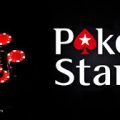
Research Shows Internet Gaming Not as Addictive as Gambling

Internet gaming might be less addictive than gambling, but it’s not all bad news. (Image: molempire.com)
Internet gaming isn’t as addictive as gambling, that’s the tentative conclusion from a team of researchers at the University of Oxford.
The issue of Internet Gaming Disorder, as defined by the American Psychiatric Association (APA), is one that’s become an area of interest for psychologists over the last two years.
Mobile gaming alone is now worth $45.7 billion and with millions of players going online each day to play everything from Farmville to Call of Duty, some have suggested that people are now spending too much time gaming.
Defining the Problem
To help understand the issue and potentially develop treatments for those spending too much time online, the APA has outlined nine key symptoms of Internet Gaming Disorder (see boxout).
Using this definition, the University of Oxford’s Internet Institute surveyed 19,000 gamers across four countries.
The study asked participants to answer questions based on how they felt after playing online by pointing to the symptoms outlined by the APA.
Of those surveyed, just over 50 percent said they’d played games recently and between 0.5 and one percent of those identified with five or more symptoms.
Contrasting this result with the British Gambling Prevalence Survey which suggested that one percent of British adults identified with a formal definition of “problem gambling,” the researchers’ believe gaming is less addictive.
Rates Low Across the Board
While the overall results are relatively similar, “problem gambling” rates among 18-24 year olds was found to be 2.6 percent, which is more than double the rates reported for online gaming. If this is true, then it would suggest that gambling is more addictive than gaming.
With 18-24 year olds forming an integral part of the economy in both industries, it would appear that gambling companies should be more concerned about addictive behaviors. Of course, in reality, the rates of possible addition are still low in either instance.
Although the University of Oxford’s study would suggest gaming is less addictive than gambling, a figure of one percent isn’t necessarily alarming. Indeed, while the headline might not do the gambling industry any favors, the details of the study certainly don’t do it much harm either.
Defining Internet Gaming Disorder
According to the APA, Internet Gaming Disorder is defined as: “Repetitive use of Internet-based games, often with other players, that leads to significant issues with functioning.”
Based on this definition posted on Psychology Today, if someone meets five or more of the following symptoms in a single year then they may have Internet Gaming Disorder:
Preoccupation or obsession with Internet games.
Withdrawal symptoms when not playing Internet games.
A build-up of tolerance–more time needs to be spent playing the games.
The person has tried to stop or curb playing Internet games, but has failed to do so.
The person has had a loss of interest in other life activities, such as hobbies.
A continued overuse of Internet games even with the knowledge of how much they impact a person’s life.
The person lied to others about his or her Internet game usage.
The person uses Internet games to relieve anxiety or guilt–it’s a way to escape.
The person has lost or put at risk and opportunity or relationship because of Internet games.















0 Comments